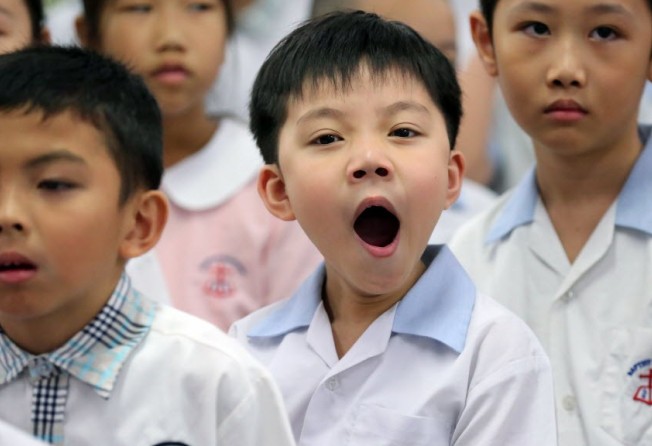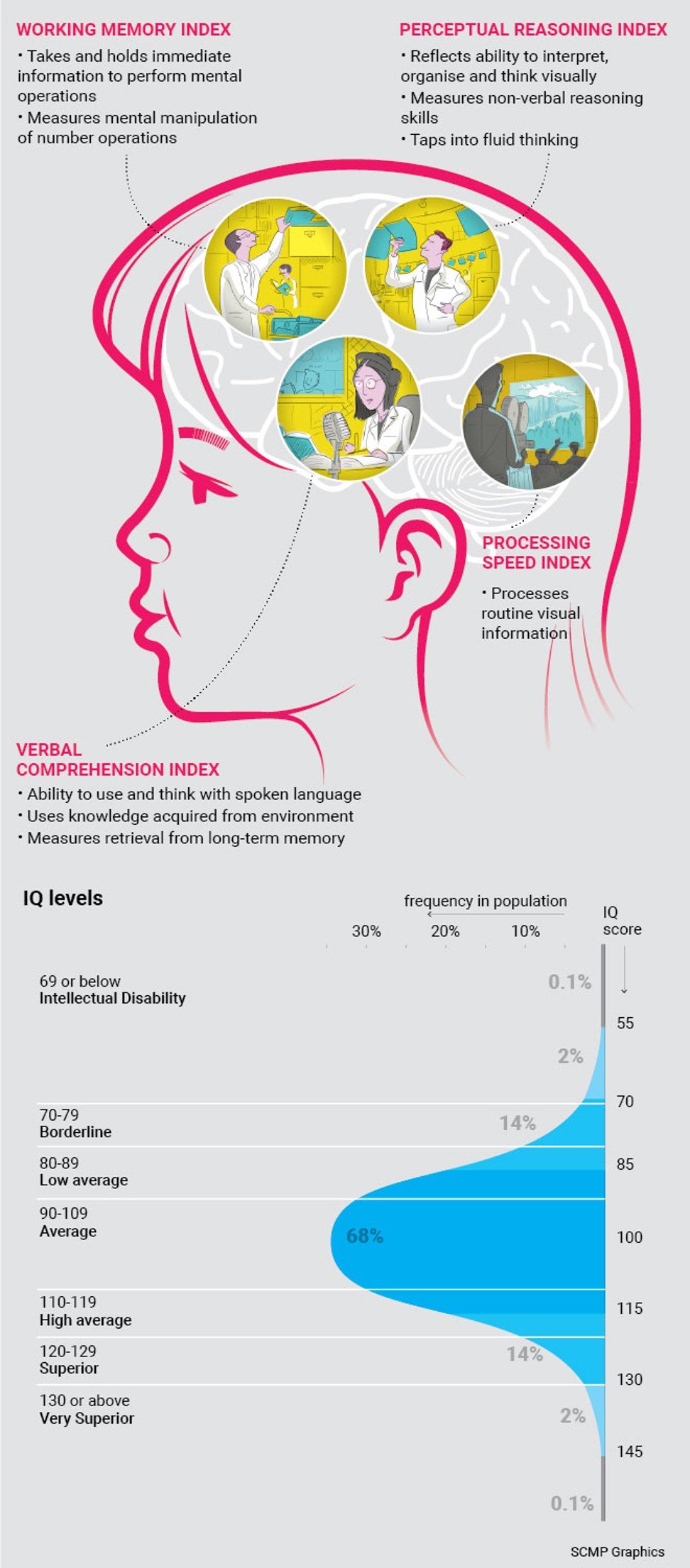How do we define intelligence in Hong Kong?
New singing superstar Celine Tam may on first look appear to have it, but psychologists say determining level of intelligence is a far more complex task

Child singing prodigy Celine Tam Tsz-kwan is the new heroine of Hong Kong.
The nine-year-old diva wowed television viewers across the world last week with her stunning performance of the classic power ballad My Heart Will Go On for the latest series of America’s Got Talent.
But in Hong Kong, where children face intense pressure to develop intellectually, intelligence is generally measured in terms of academic success, rather than just musical ability.
So, how should we define smart?
Intelligence, in scientific terms, refers to intellectual functioning. Intelligence Quotients, or IQ tests, compare someone’s performance with other people the same age who take the same test. However, as has been widely documented, these tests do not measure all kinds of intelligence, in particular social intelligence.
The Wechsler Adult Intelligence Scale (WAIS) is a type of IQ test that is most commonly used in Hong Kong, according to psychologist Dr Sammy Cheng Kin-wing. The latest version, WAIS-IV, was released in 2008. It has four indexes to measure an individual’s ability:
1. The Verbal Comprehension Index reflects an individual’s ability to understand, use and think with spoken language. It also demonstrates the breadth and depth of knowledge acquired from one’s environment. It measures the retrieval of such information from long-term memory .
2. The Perceptual Reasoning Index reflects an individual’s ability to accurately interpret, organise and think visually. It measures non-verbal reasoning skills and taps into thinking that is more fluid and requires visual perceptual abilities.
3. The Working Memory Index reflects an individual’s ability to take in and retain information in immediate awareness and then perform a mental operation on that information. It also measures the mental manipulation of number operations.
4. The Processing Speed Indexreflects an individual’s ability to process simple or routine visual information quickly and efficiently.
There are seven IQ levels of WAIS-IV to define how smart a person is. Cheng says a child with IQ level 130 or above could be regarded as an intellectually gifted child. But the Hong Kong Academy for Gifted Education points out that gifted ability cannot be based on IQ score only as other educational criteria could also serve as indications of a person’s ability.
IQ Level: Descriptive Classification
130 or above: Very Superior
120-129: Superior
110-119: High Average
90-109: Average
80-89: Low Average
70-79: Borderline
69 or below: Intellectual Disability
Is everyone eligible to take an IQ test?
Yes, but the Department of Health’s family health services unit does not recommend preschoolers take IQ tests unless they have learning or social adjustment difficulties. This is because preschoolers’ brains are still developing and therefore the results may not be fully reflective of their abilities or intelligence.
Where can I take an IQ test?
The Education Bureau and the Department of Health in Hong Kong do not provide routine IQ testing to solely assess how gifted children are. IQ tests should be carried out only by qualified psychologists, such as educational or clinical psychologists who have received relevant training.
Which parts of the brain reflect our intelligence?
According to a study by American scientists published in 2012, the key areas of the brain for intelligence include the left prefrontal cortex (behind the forehead), the left temporal cortex (behind the ear) and the left parietal cortex (at the top rear of the head), as well as the areas that connect them. By studying the brains of a group of 182 Vietnam war veterans with highly localised brain damage, they found that a person’s intelligence relied on whether specific parts of the brain were able to work together in a coordinated way. There were also areas in the right hemisphere, such as the right superior parietal cortex, which were identified as important for visual and spacial reasoning.
University of Illinois neuroscientist Aron Barbey said patients had impaired verbal comprehension when brain regions within the left frontal and temporal cortex were damaged. Performance in working memory depended on regions in the left frontal, temporal and parietal cortex.
“Several brain regions, and the connections between them, were most important for general intelligence,” he said.
Learning difficulties
Hong Kong has seen an increase in the number of children with learning disabilities, such as autism and attention deficit and hyperactivity disorder (ADHD). Critics of the Hong Kong education system suggest these children are sometimes left behind because teachers do not know how to support them, and suggest they could have hidden intelligence.
In 2014, the Department of Health’s child assessment service, which provides diagnostic evaluation services, received 9,494 new cases of children with learning disabilities, an increase from 8,775 in 2013, according to a Legislative Council paper. There were 7,210 cases in the first nine months of 2015.
Although the government encourages these children to attend mainstream schools, some concern groups believe that only a tailor-made teaching approach can help them learn.
Those who had difficulties coping with ordinary schools either go to a private institution that caters to their needs or aided special schools, which mainly cater to children with visual or hearing impairments and physical or intellectual disabilities.
Some believe children with autism and ADHD are “gifted” because of their lack of desire to attend ordinary classes, which the Department of Health’s family health services unit called a “myth”.
The department said children with ADHD had intellectual functioning just like normal children, although it estimated that only 1.9 per cent of children diagnosed with the condition had “very superior intelligence”.
Sources: Department of Health, Washington Centre For Cognitive Therapy and psychologist Dr Sammy Cheng Kin-wing.
